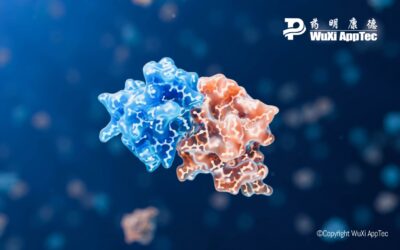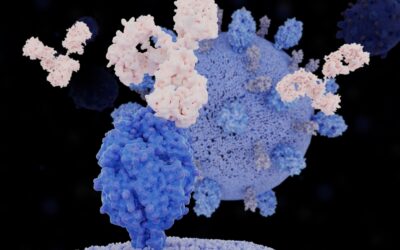To make well-informed decisions about the future of your drug candidate, you need highly accurate and reliable data. Generating such data starts with bioanalytical method development and validation – a precise process that requires support from your testing partner.
Researchers have to make important, data-driven decisions to move from one step of the drug development process to the next. In discovery, the decision is about selecting a lead compound. In preclinical stages, it’s about assessing and optimizing ADME properties and toxicity. Ultimately, these decisions lead you to your IND submission and first-in-human studies.
So, how do you get this data? Bioanalytical testing.
What Is Bioanalytical Testing & Method Development & Validation?
Bioanalytical testing (also referred to as bioanalysis) is the process of identifying and quantifying drugs and metabolites in various biological matrices. To do this, researchers need to identify safety and response biomarkers that can detect the drug in the body’s system.
But not just any biomarker or identification method will cut it. To ensure data reliability and assay performance, researchers must develop and validate bioanalytical methods from step to step.
While there are hundreds of nonproprietary methods available that researchers can start with, selecting the right fit-for-purpose method can be challenging. Sometimes, the right method doesn’t yet exist (especially if you’re working with a new modality), which means a custom method needs to be developed. After all of that, methods have to be adjusted and validated as you progress through the drug development spectrum.
Following regulatory guidance with method development and validation is key to success, which is why most drug developers don’t embark on the challenge alone. Here are three important qualities you should evaluate when looking for a bioanalytical method development and validation partner.
What to Look for in a Bioanalytical Testing, Method Development & Validation Partner to Make Differences
1. Relevant Regulatory Experience
Developing and validating bioanalytical methods should not be taken likely – the accuracy of your data depends on it.
To underpin this importance, the FDA published guidance for the industry, and the International Council for Harmonization of Technical Requirements for Pharmaceuticals for Human Use (ICH) released M10, a multidisciplinary guideline.
It’s important to work with a partner that understands these guidelines and has a long history with successful regulatory inspections. Look for a bioanalytical testing partner with a comprehensive understanding of the regulations and questions or requests that tend to come from regulatory agencies. This insight will help you better follow guidance and adapt to changes.
#2. Automated Testing Processes
The drug development process is time and resource intensive. Any area you can automate – specifically when it comes to large clinical sample analysis – will save you time, improve accuracy, and boost productivity.
Bioanalytical testing is a great candidate for such automation, reducing the risk of delays due to human errors, improving the quality of assays and analytics, and helping researchers meet regulatory compliance.
Not all laboratories have embraced or fully incorporated automation into their procedures. Be sure to ask your potential partner for their automation capabilities – the accuracy, savings, and efficiencies can be game-changing.
#3. Central Laboratory Services
Data is at the center of all your decisions in the drug development process. This means the process you follow to generate this data – your bioanalytical process – should also be at the center of your decisions.
So, in addition to the aforementioned recommendations, look for a partner that offers comprehensive central laboratory services. A central laboratory is an operational hub for new drugs and other therapeutic interventions, connecting the sponsor, industry, clinical sites, and testing labs. This ensures there are no risks from transferring samples across locations and is particularly useful for clinical studies.
Working with a central laboratory can save researchers time and money by eliminating the need to work with multiple vendors. A central laboratory partner should offer:
- Tailored services that fit your specific project’s needs.
- A dedicated project manager.
- Expert testing personnel.
- A successful record of delivering high-quality and reliable data.
- An extensive method library and experience developing new methods.
- State-of-the-art testing solutions from preclinical to clinical stages.
- Cross-site collaboration and global logistics capabilities.
Although most of the assays performed in a central lab are FDA approved (making method development and validation unnecessary), in some circumstances method verification may be needed.
Conclusion
From DMPK to safety assessment across discovery, preclinical, and clinical stages, bioanalytical testing is a critical part of the drug development process. The organization you partner with to conduct this testing – including developing and validating the right methods to ensure accurate and reliable data – is one of the most important decisions you will make.
Your testing partner should bolster your ability to put together a complete regulatory submission and ultimately lead you to better data and a better path to clinical trials – and the market at large.
Leveraging worldwide expertise, regional flexibility, and the latest technology platforms, the WuXi AppTec Laboratory Testing Division delivers quality results through the discovery, preclinical, and clinical phases. Talk to an expert about your upcoming project to see how we can help.
As a global company with operations across Asia, Europe, and North America, WuXi AppTec provides a broad portfolio of R&D and manufacturing services that enable the global pharmaceutical and life sciences industry to advance discoveries and deliver groundbreaking treatments to patients. Through its unique business models, WuXi AppTec’s integrated, end-to-end services include chemistry drug CRDMO (Contract Research, Development and Manufacturing Organization), biology discovery, preclinical testing and clinical research services, helping customers improve the productivity of advancing healthcare products through cost-effective and efficient solutions. WuXi AppTec received an AA ESG rating from MSCI for the fourth consecutive year in 2024 and its open-access platform is enabling around 6,000 customers from over 30 countries to improve the health of those in need – and to realize the vision that “every drug can be made and every disease can be treated.”


